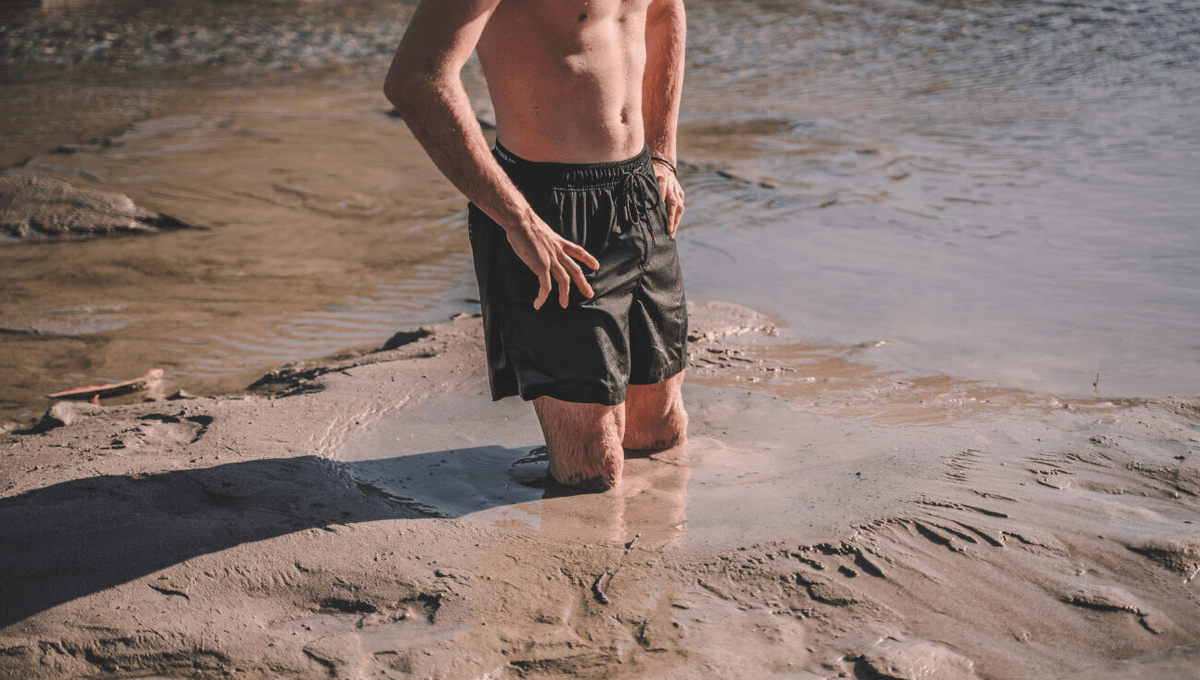
All those Looney Tunes shows you watched as a kid were deeply deceiving. Quicksand, as it turns out, is a relatively insignificant threat to your well-being and scarcely ever appears in adult life. That said, this slurry-like solution is a real thing and certainly something that should be taken seriously.
Quicksand became a common trope of Hollywood productions during the post-war boom of action-packed B-movies, providing the perfect opportunity for a dramatic death and an exotic plot device. According to Slate, nearly 3 percent of the films in the 1960s featured a character sinking in some form of mud, oozing clay, or quicksand. Arguably the most famous run-in with sinking sand is the 1962 classic Lawrence of Arabia.
It continued to be a peculiarly common cliché through the 1980s when roughly one of every 75 new films featured a variety of sand quick. Think: The Princess Bride and The NeverEnding Story, not to mention countless appearances in cartoon shows like The Transformers and GI Joe.
Cameos of quicksand have slowly declined in more recent decades, but they still appear in dramatic depictions much more than they do on the average daily commute.
What is quicksand?
Quicksand is a sludgy solution of sand (or other fine granular material like silt or clay) that’s become mixed with just the right quantity of water, creating a surface that looks like a solid, but behaves like a semi-viscous liquid, like a super-thick milkshake.
They are most commonly found near bodies of water, like riverbanks or beaches, where the sediment is prone to become saturated.
It can act as a non-Newtonian fluid, meaning any applied stress (like a punch or a stomp) will make its apparent viscosity decrease and effectively turn it solid. This means, in theory, you should be able to run across without sinking. On the other hand, any attempt to yank a limb out of the quicksand will also cause it to seize up and give it solid-like properties. This is where the old mantra of “the more you struggle, the more you’ll sink” comes from.
Can you go fully under in quicksand?
As unpleasant as this might sound, it’s surprisingly hard for a human to completely submerge themselves in quicksand.
An experiment by Dutch scientists, reported in the journal Nature in 2005, found that humans are about half the density of quicksand, meaning they should technically float on the quicksand provided they don’t struggle and bury themselves. The useful survival tip is to ditch any possessions you have on you, such as a backpack, as soon as possible.
“A person trapped in salt-lake quicksand is not in any danger of being sucked under completely,” according to the study.
“Any unfortunate victim should sink halfway into the quicksand, but could then take solace from the knowledge that there would be no risk of being sucked beneath the surface.”
Is quicksand a real danger?
Unfortunately, the US Centers for Disease Control and Prevention nor any other health authorities around the world collect data on the number of quicksand deaths they come across each year. That’s because they are exceptionally rare, not because they are covering any kind of quicksand conspiracy.
Freak accidents can occur, however. Most fatal incidents with quicksand involve people becoming stuck in the ground and succumbing to other factors like dehydration, hypothermia, or drowning from rip tides.
How to escape quicksand
If you do find yourself stuck in quicksand, there are a few things you can do to ease the situation. First and foremost, don’t panic (easier said than done, obviously). Flailing around and trying to pull out your own limbs is likely to result in more of your body becoming submerged, which isn’t good news.
As counterintuitive as it might seem, it’s often advised that you lean back and spread out to spread your weight more evenly. This, in theory, should help you float on the surface and not plummet. You can also gently wiggle your legs, which can introduce more water to the sediment and liquefy it.
Your best bet is to find external help as quickly as possible. Time is of the essence, so act quickly and calmly.
Source Link: Is Quicksand Actually As Deadly As Movies Led Us To Believe?